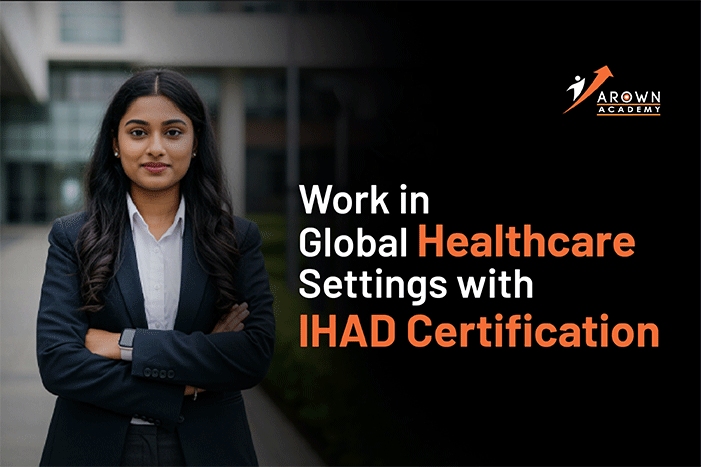The healthcare industry is undergoing a massive transformation—driven by digitalization, aging populations, and an ever-growing need for quality care and efficient administration. As healthcare systems expand and evolve, the demand for skilled professionals in both clinical and non-clinical roles is at an all-time high.
Whether you're a fresh graduate, career switcher, or working professional aiming to upskill, here are 7 high-demand healthcare courses that can shape your future and open doors to global opportunities.
Hospital Administration Course
Hospitals function as highly complex organizations. This course prepares you to oversee daily operations, manage teams, and ensure compliance with healthcare regulations.
• Duration: 6–12 months
• Eligibility: Graduates from any stream (preferably Life Sciences, Commerce, or Management)
• Expected Salary: ₹300,000–₹1,000,000 per annum
• Career Roles: Hospital Manager, Quality Supervisor, Healthcare Consultant
Home Health Coding
With the shift toward home-based healthcare services, accurate coding and documentation have become crucial. This course focuses on real-time patient charting and insurance compliance.
• Duration: 3–6 months
• Eligibility: Graduates or diploma holders with anatomy and medical terminology knowledge
• Expected Salary: ₹250,000–₹500,000 (India); up to ₹5,000,000 internationally
• Career Roles: Home Health Coder, Reimbursement Specialist, Clinical Documentation Specialist
IPDRG (Inpatient Diagnosis Related Group Coding)
An advanced course that trains you in hospital billing systems, focusing on diagnosis-related groupings. Ideal for professionals entering revenue cycle management and international billing.
• Duration: 4–6 months
• Eligibility: Life Sciences, Nursing, or Allied Health graduates
• Expected Salary: ₹300,000–₹700,000 (India); ₹1,500,000–₹3,000,000abroad
• Career Roles: DRG Coder, Billing Analyst, Revenue Cycle Manager
IHAD (International Healthcare Administration & Documentation)
A comprehensive course that combines hospital administration with global documentation standards. It’s ideal for those looking for international healthcare careers.
• Duration: 6–12 months
• Eligibility: Any graduate with good communication skills
• Expected Salary: ₹400,000–₹800,000 (India); up to ₹3,500,000 internationally
• Career Roles: Healthcare Admin Executive, International Coordinator, Health Data Analyst
IDHA (International Diploma in Hospital Administration)
One of the most recognized diplomas for healthcare leaders. Covers everything from hospital workflow to quality standards and legal frameworks.
• Duration: 12–18 months
• Eligibility: Graduates or healthcare professionals
• Expected Salary: ₹500,000–₹1,200,000 (India); ₹3,000,000+ abroad
• Career Roles: Hospital Administrator, Consultant, Department Head
PG Diploma in Hospital Administration
A perfect course for graduates looking to transition into healthcare operations and policy. It provides real-world training for mid-level managerial positions.
• Duration: 1 year
• Eligibility: Bachelor’s degree (preferably in Science, Nursing, or Commerce)
• Expected Salary: ₹400,000–₹700,000 per annum
• Career Roles: Hospital Operations Manager, Policy Analyst, Clinical Administrator
MBA in Healthcare Management
Combining business acumen with healthcare knowledge, this postgraduate program is designed for professionals targeting executive and leadership roles in the healthcare sector.
• Duration: 2 years
• Eligibility: Bachelor's degree + CAT/MAT/XAT or equivalent
• Expected Salary: ₹600,000–₹1,500,000 (India); ₹5,000,000+ with global exposure
• Career Roles: Healthcare Director, Strategic Planner, Hospital CEO (with experience)
Bonus: Medical Coding Course
A high-demand, evergreen course that trains professionals to translate clinical data into universal codes for billing, insurance, and digital records.
• Ideal for: Freshers and career switchers in healthcare IT
• Opportunities: Global certifications (CPC, CCS, ICD-10) make you job-ready for top hospitals, MNCs, and insurance firms
Why Now?
- Job Demand: Massive growth in healthcare, telemedicine, and hospital chains
- Global Careers: Courses like IDHA, IHAD, and IPDRG open doors to international placements
- Flexible Learning: Study online or offline with real-world case studies and live projects
- High ROI: Short-term courses with long-term career impact
Who Can Join?
- Graduates from any stream—science, commerce, arts
- Working professionals in healthcare or administration
- Freshers looking for skill-based careers in healthcare
Ready to Transform Your Career?
If you're seeking a recession-proof, purpose-driven, and globally relevant profession—healthcare is your future.
Need help choosing the right course?
Visit our website: arown.in
Call Us: 08086099920





